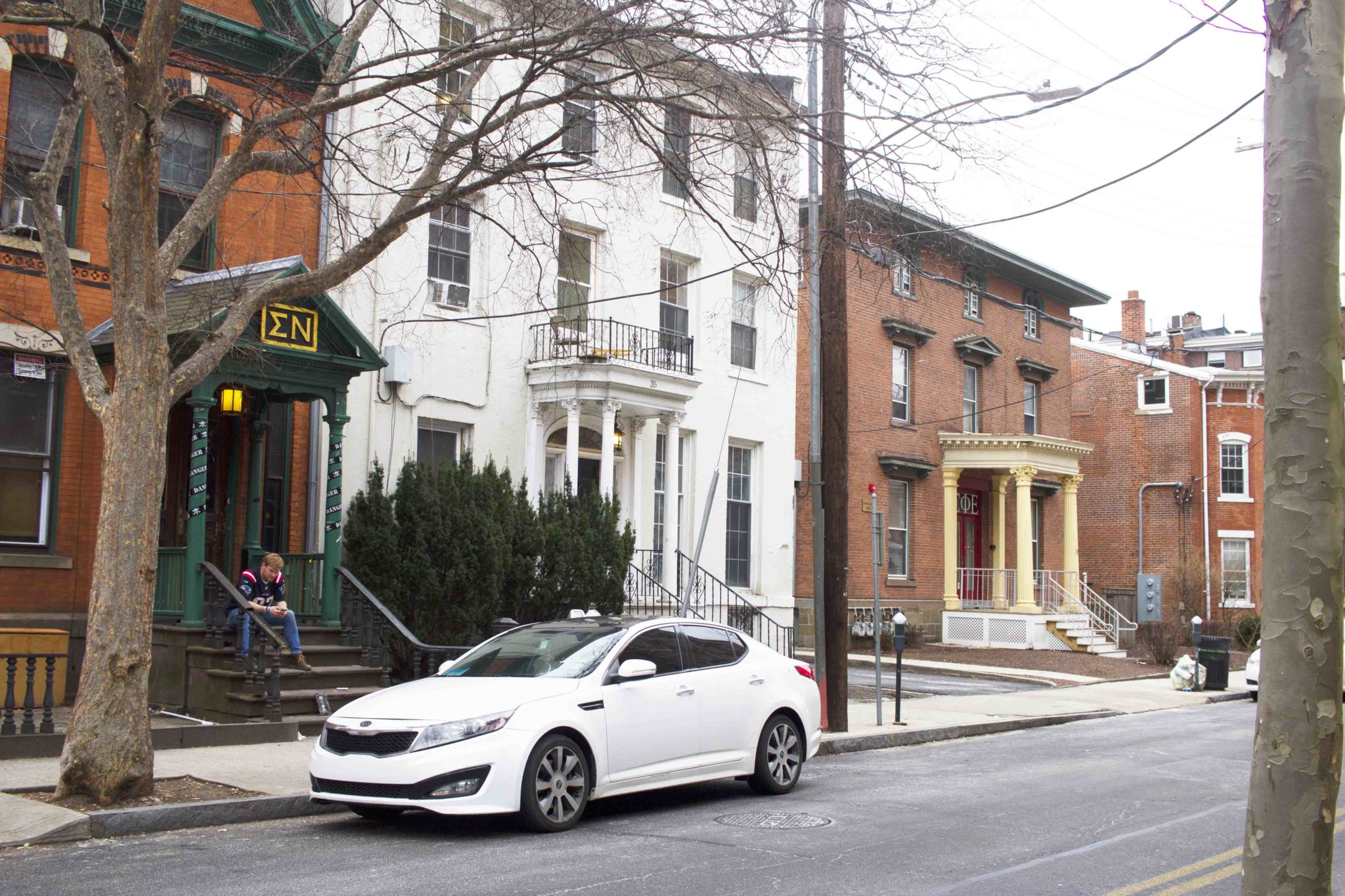
About 10 women and gender nonbinary students will request membership bids this week from the fraternity Sigma Phi Epsilon, which has opened its rush process to non-males for the second year in a row.
Most of the rushees are members of Engender, a student group that advocates for fraternities and other social spaces on campus to become gender integrated. Anna McNeil ’20, a co-director of Engender who is rushing SigEp for the second time, said the rush process this year has been a more positive experience than it was last year. The fraternity kept Engender members informed about the rush schedule, and fraternity brothers were more willing to engage with female and gender nonbinary rushees this time around, she said.
“Last year, there was much more backlash in SigEp and across campus,” said Will McGrew ’18, a co-director of Engender and member of SigEp. “This year, I think most people are either supportive of [including non-males] or kind of resigned to it. There is less vocal resistance to it because at the end of the day, the only real arguments you can use against it … are sexist arguments.”
The number of women and gender nonbinary students formally requesting membership this year has roughly doubled from last year’s cohort of five. Last year, SigEp did not offer membership to female and gender nonbinary students who submitted bids, citing national bylaws that restrict non-male individuals from joining the fraternity. These bylaws remain in place today.
Members of SigEp leadership did not respond to requests for comment.
Maya Pasic ’21, who has been attending SigEp rush events and meals this year, called the process “awkward, but really accommodating,” and said that members of the fraternity were open to discussing the issue of coeducation and did not seem to treat her differently because of her gender.
Still, many women expressed frustration with SigEp’s decision to hold a “Date Night” rush event this year. SigEp explicitly asked Engender for suggestions to improve rush after last year’s recruitment process, McNeil said, but the group’s concerns about date night — “something that made all of the female rushees last year uncomfortable” — were largely ignored.
“The vast majority of people seemed to bring women, either platonically or as dates,” said Madeline Bogert ’19, a member of Engender who submitted a bid this year. “It felt like there was a much clearer gender distinction. It felt like if you’re a woman, you’ve been brought here by a man.”
McNeil, Bogert and Jojo Attal ’21, an Engender co-director who also submitted a bid this year, all suggested that many members of SigEp seem to support becoming coed, but are unwilling to advocate for this change personally and instead blame national restrictions on membership.
Members of Engender’s leadership said they reached out to eight fraternities on campus last month to request a gender-inclusive recruitment process. In an email sent to fraternity presidents on Jan. 22, Associate Vice President of Student Life Burgwell Howard suggested that fraternities allow students of all genders to attend their rush events. But like last year, SigEp is the only fraternity that chose to open its rush process to non-male students.
Sigma Nu declined to allow women to participate in its rush events, citing the group’s right to free association, Engender’s co-directors said. Otis Baker ’19, president of Chi Psi, said his fraternity has had “no interactions with members of Engender” during this year’s rush process. The other five fraternities — LEO, Alpha Epsilon Pi, Sigma Chi, Delta Kappa Epsilon and Zeta Psi — did not respond to Engender’s request, according to Engender.
The leadership of LEO, Alpha Epsilon Pi, Sigma Chi and Zeta Psi did not respond to requests for comment from the News. Delta Kappa Epsilon has cancelled all social events until its national organization completes an investigation into the chapter’s sexual climate.
Engender will determine its next course of action after SigEp’s bid night on Friday, when the new pledge class is announced, according to Natalie Schultz-Henry ’20, a co-director of Engender who is rushing this year. Engender’s co-directors said that lobbying Yale would be the next most likely step to achieve gender integration because fraternity chapters are unwilling to risk provoking their national organization by admitting non-male students.
Engender’s co-directors said they met with Howard and Yale College Dean Marvin Chun last September to discuss the possibility of integrating fraternities. The group asked to meet again last month after allegations of sexual assault by members of DKE surfaced in the News and Business Insider, but Howard has not responded to the request, according to the co-directors.
Howard did not respond to a request for comment from the News.
The group members plan to convey their grievances to Yale about the fraternities’ all-male policies and the University’s decision not to punish DKE despite accusations of sexual assault against members.
“If there are repeated cases of harassment at certain fraternities, Yale needs to shut down those fraternities. There is no other alternative — either coeducate them or shut them down,” McGrew said. “We’re going to be formally presenting to Yale how we believe them to be in violation of their own anti-discrimination policy and in violation of Title IX.”
Alec Bernal ’21, a SigEp rushee, said that a member of Engender approached him at a rush event and asked whether he was interested in their cause. Bernal said he appreciated the group’s efforts to get in touch with the current pledge class, and speculated that other fraternities may begin allowing women to rush if they see SigEp grow in popularity as a “more progressive” fraternity.
SigEp’s Yale chapter currently has 101 members.
Alice Park | alice.park@yale.edu







